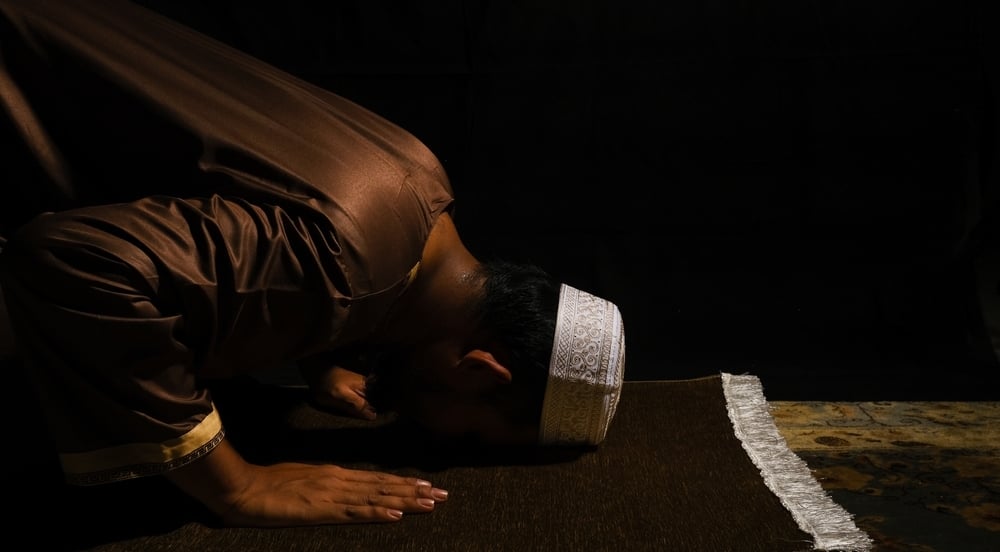How Many Times Should I Repeat the Prayers in Bowing and Prostrations?
Shafi'i Fiqh
Answered by Shaykh Irshaad Sedick
Question
I would like to know the recommended number of tasbih recitations in sujud (prostration) and ruku‘ (bowing). Is reciting it ten times considered better? Additionally, is it permissible to say “hamdan kathiran tayyiban mubarakan fihi” after “rabbana lakal hamd”?
Answer
In the Name of Allah, the Most Merciful and Compassionate. May Allah alleviate our difficulties and guide us to what pleases Him. Amin.
The invocations recommended in the bowing and prostrating postures of the prayer are to be repeated three times each, as the minimal optimum number.
When one prays alone or with the imam of a limited number of followers who do not mind the extra length, the repetitions may be increased up to eleven times, ideally ending in an odd number (5;7;9;11). [Misri, ‘Umdat al-Salik]
Upon straightening up from Ruku‘(Bowing)
After the Imam says sami‘ Allahu li man hamidah (Allah hears whoever praises Him), it is recommended to say:
(رَبَّنَا لَكَ الْحَمْدُ) (مِلْءَ السَّمَوَاتِ وَمِلْءَ الْأَرْضِ وَمِلْءَ مَا شِئْتَ مِنْ شَيْءٍ بَعْدُ)
“Our Lord, all praise is Yours, heavenful, earthful, and whatever-else-You-will-full.”
When one prays alone or with the imam of a limited number of followers who do not mind the extra length, they may add here:
(أَهْلَ الثَّنَاءِ وَالْمَجْدِ أَحَقُّ مَا قَالَ الْعَبْدُ وَكُلُّنَا لَكَ عَبْدٌ، لَا مَانِعَ لِمَا أَعْطَيْتَ وَلا مُعْطِيَ لِمَا مَنَعْتَ وَلا يَنْفَعُ ذَا الْجَدِّ مِنْكَ الْجَدُّ،)
“O You who deserve praise and glory, the truest thing a slave can say (and all of us are Your slaves) is, ‘None can withhold what You bestow, none can bestow what You withhold, and the fortune of the fortunate avails nothing against You.’” [Ibid.]
It is also recommended to say:
رَبَّنَا وَلَكَ الْحَمْدُ، حَمْدًا كَثِيرًا طَيِّبًا مُبَارَكًا فِيهِ
Rabbana wa laka al-hamd, hamdan kathiran tayiban mubarakan fihi
“O our Lord! All the praises are for You—many good and blessed praises.”
Words Carried by Angels
Rifa‘a Ibn Rafi‘ al-Zuraqi (Allah be pleased with him) narrated,
“One day we were praying behind the Prophet (Allah bless him and give him peace). When he raised his head from bowing, he said, “Sami ‘Allahu li man hamida.”
A man behind him said, “Rabbana wa laka al-hamd, hamdan kathiran tayiban mubarakan fihi” (O our Lord! All the praises are for You, many good and blessed praises).
When the Prophet (Allah bless him and give him peace) completed the prayer, he asked, “Who has said these words?” The man replied, “I.” The Prophet (Allah bless him and give him peace) said, “I saw over thirty angels competing to write it first.”
The Prophet (Allah bless him and give him peace) rose (from bowing) and stood straight till all the vertebrae of his spinal column came to a natural position. [Bukhari]
I pray this is of benefit and that Allah guides us all.
[Shaykh] Irshaad Sedick
Shaykh Irshaad Sedick was raised in South Africa in a traditional Muslim family. He graduated from Dar al-Ulum al-Arabiyyah al-Islamiyyah in Strand, Western Cape, under the guidance of the late world-renowned scholar Shaykh Taha Karaan (Allah have mercy on him), where he taught.
Shaykh Irshaad received Ijaza from many luminaries of the Islamic world, including Shaykh Taha Karaan, Shaykh Muhammad Awama, Shaykh Muhammad Hasan Hitu, and Mawlana Abdul Hafeez Makki, among others.
He is the author of the text “The Musnad of Ahmad ibn Hanbal: A Hujjah or not?” He has been the Director of the Discover Islam Centre, and for six years, he has been the Khatib of Masjid Ar-Rashideen, Mowbray, Cape Town.
Shaykh Irshaad has fifteen years of teaching experience at some of the leading Islamic institutes in Cape Town). He is currently building an Islamic podcast, education, and media platform called ‘Isnad Academy’ and has completed his Master’s degree in the study of Islam at the University of Johannesburg. He has a keen interest in healthy Prophetic living and fitness.
